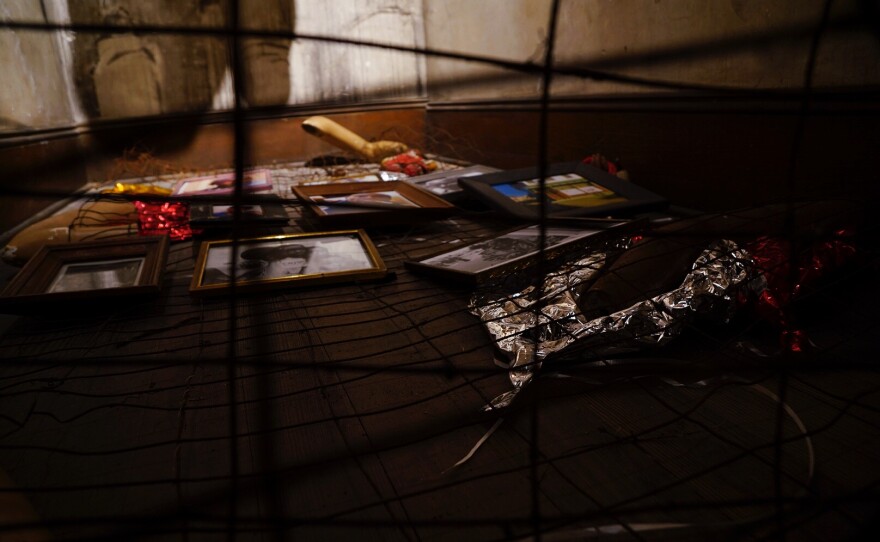A new batch of artists has hunkered down for an experimental, immersive residency in Greensboro's Elsewhere Museum. For the nearly month-long Southern Constellations Fellowship, artists from different generations and backgrounds play, perform and present their work within the walls of Greensboro's thrift store-turned-museum.
Host Frank Stasio talks with two of this year’s fellows: photographer SHAN Wallace and performance artist Daniel B. Coleman. Wallace is a Baltimore-based street photographer, activist and organizer who focuses her work on African-American life in Baltimore and the intersection between police and the black community. For her Southern Constellations project, she created a vigil for African-Americans on the third floor of the museum that explores both public and private grief.
"I've outlived so many people, and so I'm really trying to personally heal and mourn, but I'm opening up this room and this conversation for other folks to come in and do the same as well."
- SHAN Wallace
On the same floor, Coleman has lined a room with images of transgender people and Southern trans histories to spark conversation about the repeated attacks on trans bodies and trans people of color. Coleman is a transfeminist artist and scholar whose performance art has influenced his own experience in a trans body. He also teaches Women's and Gender Studies at the University of North Carolina at Greensboro. The Southern Constellations fellows present their work to the public on Friday, Nov. 2, from 6 p.m. to 9 p.m. at Elsewhere Museum in downtown Greensboro.
Interview Highlights
SHAN Wallace on the legacy of street photography in Baltimore:
I think historically about photographs and the visual history of African-Americans, from slavery when African-Americans as slaves would only take photographs with their master's children, to Jim Crow when we would only see images of black men being lynched ... I'm just trying to contribute to Gordon Parks and Roy DeCarava and all of these different photographers and these different bodies of work that have continuously shown our history and how it looks to survive and adapt in America.
On the impact of documenting black vigils in Baltimore and creating a vigil art space:
It's completely opened my eyes to the importance of really addressing a lot of things that I've been through. And I've experienced death a lot within my family, my friends. I've outlived so many people, and so I'm really trying to personally heal and mourn, but I'm opening up this room and this conversation for other folks to come in and do the same as well. Growing up in Baltimore, just the dysfunction and death and the injustices were just so normalized. So now that I'm 27, I'm in my Saturn Return – my Saturn Return in the universe is telling me: OK, you didn't have time to grieve. You didn't have time to mourn. You also didn't have an example of what that looked like. And so here's your chance. To move on into your 30s and live a better and healthier and lighter life you have to address that grief that you have. You have to mourn, and you have to really set these people free and let them rest in peace, because that's when again I can have that relationship with them.
Daniel B. Coleman on using performance art as a way to fight for the care of trans bodies:
"As a masculine presenting person of color where people want me dead. People want my people dead."
- Daniel B. Coleman
What does it mean to live in a feminized body as a masculine presenting person? As a masculine presenting person of color where people want me dead. People want my people dead. And so rather than working from a space of victimhood, [I'm] working from a space of being warriors ... Our bodies are living testimonies to other ways of existence, and we hold that space together. And so I'm invested in creating spaces that hold. That hold. Where my own body feels held and where I can invite other bodies into feeling more human.
Coleman on learning to own the way his body moves today:
I've learned how to move from an initiation that comes internally ... So instead of focusing on aesthetically: What do I look like. Moving [to]: What do I feel. How do I externalize that feeling. So then I take the gaze back. So people can choose to look upon me however they want. But they don't own that anymore.







